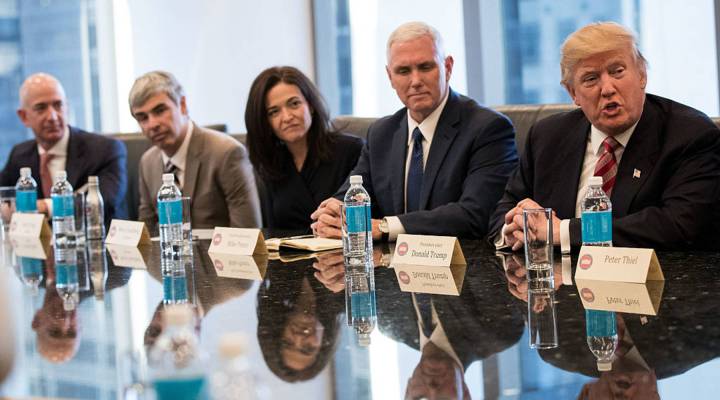
Would companies use repatriated profits to invest?

A proposal in the Republican tax framework released Wednesday would impose a one-time levy on corporate profits stashed overseas. U.S. multinationals currently have to pay a 35 percent corporate income tax on any foreign profits they bring home, minus taxes paid to a foreign government. To lure more of that money back to the U.S. economy, Republicans have proposed a one-time tax at a much lower rate.
The change would bring in government revenue and, the theory goes, spur investment here at home. U.S. companies like Apple, Citigroup and Nike are estimated to have stockpiled $2.6 trillion abroad to avoid paying U.S. taxes.
“Right now we have sort of a fence around the U.S. economy that deters companies from bringing their profits back home,” said Chris Edwards, an economist with the Cato Institute.
The idea is to first lower that fence and then transition to a system where foreign profits aren’t taxed by the U.S. at all. The government has tried something like this: a one-time tax holiday in 2004 brought in an estimated $300 billion, up from the $60 billion repatriated in a typical year. Economist Dhammika Dharmapala at the University of Chicago Law School studied what happened.
“The repatriations under the holiday did not seem to lead to increased domestic investment and employment, and were reflected mostly in share repurchases,” Dharmapala said.
That’s right, rather than invest in new factories or R&D, companies bought back their own stock or paid dividends to their shareholders.
Economist Kimberly Clausing at Reed College expects the same thing to happen again.
“It’s a win for those at the top, but neutral effects on investment, and I wouldn’t expect any positive effect for American workers,” Clausing said.
A report by researchers at Goldman Sachs this week suggests that high equity prices might make buybacks less attractive this time around. The plan’s supporters say no matter how companies spend the money, as long as they spend it here, it’ll be good for the economy.
| The GOP tax plan has fewer tax brackets and bigger deductions, but is light on details |
| 2017 is no 1986 when it comes to tax reform |
| How Americans really feel about tax reform |
There’s a lot happening in the world. Through it all, Marketplace is here for you.
You rely on Marketplace to break down the world’s events and tell you how it affects you in a fact-based, approachable way. We rely on your financial support to keep making that possible.
Your donation today powers the independent journalism that you rely on. For just $5/month, you can help sustain Marketplace so we can keep reporting on the things that matter to you.












